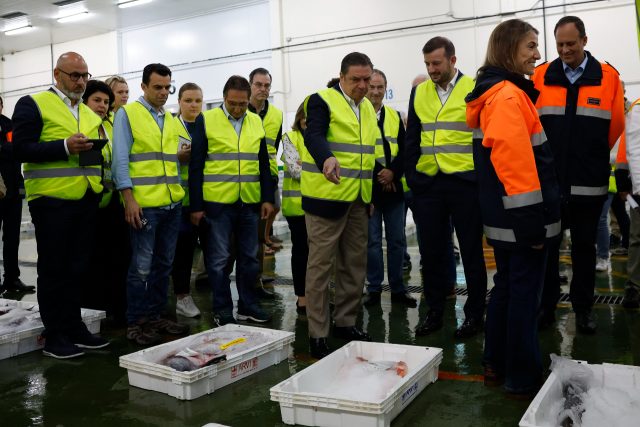
In the coastal city of Vigo, the Spanish Presidency of the Council of the European Union (EU) held its Informal Ministerial Meeting on Fishing and Fisheries. The main item of the meeting’s agenda was discussing the need for a strategy for the eventual decarbonisation of the fishing and fisheries sector. The task follows from the need to meet the European Green Deal’s objectives of making the EU climate neutral by 2050 whilst ensuring the sustainability and economic viability of the sector. Despite the positive outlook expressed by ministers following the meeting, their discussions demonstrate that decarbonising the fishing sector, far from an easy task, encounters serious barriers.
The meeting’s first working session gathered representatives of fishing entities for the presentation of the report written by the European Economic and Social Committee (EESC) on the decarbonisation of the fishing fleet. The report argued that eco-fuels are the most viable alternative for the fishing sector’s eventual abandonment of fossil fuels. It also recognised that any change on the energy source will require new vessels with a greater on-board capacity to accommodate new machinery, which necessitates the revision of the current definition of fishing capacity in the Common Fisheries Policy (CFP). Lastly, it voiced its concern with the limits on the European Maritime and Fisheries Fund (EMFF), as it is unable cover the investments needed for the energy transition.
The second working session allowed EU fisheries representatives and the ministers to exchange views on the challenges facing the sector. There was broad agreement on the need to define a common strategy to decarbonise fishing fleets.
Attendees also highlighted the need to further technological innovation and development of the naval industry. They agreed that, given the high prices of eco-fuels – they currently double those of diesel – it is not a possibility to access alternative fuel sources, especially for those ships for medium and longer distances. Furthermore, they followed the EESC’s conclusions of the need to revise the definition of fishing capability of the CFP.
Nevertheless, any potential success in the decarbonisation of the sector faces a key constraint: the lack of funding. The process of decarbonisation will require extensive funding, which is impossible to assume by national governments on their own and unlikely to be mobilised from the European level. Upgrading current fishing fleets to meet decarbonisation objectives will require extensive investment in research and development of ships and machinery required, as well as covering the costs of replacing all vessels. These may prove far too high for individual Member States to assume, especially given the current economic situation. Similarly, at the fishermen’s level, the high prices of alternative fuel sources make eco-fuels neither a preference nor a choice over fossil fuels.
At the European level, funding has already been scarce, a situation unlikely to change. As the EESC report noted, the EMFF is unable to finance the investments needed for the energy transition. More worryingly, as the European Commissioner on Environment, Oceans and Fisheries Virginijus Sinkevičius’s address to the press suggest, EU funding in this regard will not be an option. As he noted, the EU has ruled out the possibility of creating a fund to finance the decarbonisation and transition of European fishing fleets.
Admittedly, as the Spanish Minister for Agriculture, Fisheries and Food, Luis Planas, concluded, the meeting has kickstarted the debate on the issue of funding the energy transition of the fishing and fisheries sector. Moreover, Sinkevičius said that the EU was open to discussing capacity limits for fishing fleets considering the industry’s concerns and the conclusions of the report, which suggest their potential flexibilization. In any case, the case remains: despite the broad agreement shared by ministers, any potential success in the decarbonisation of the fishing industry requires an investment that remains out of reach, for now at least.



 Subscribe
Subscribe